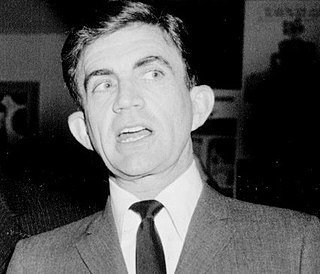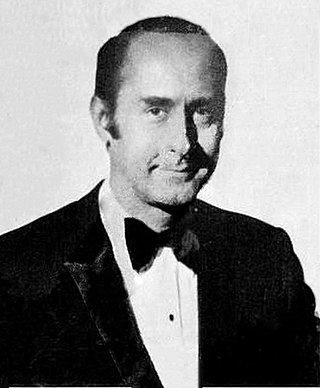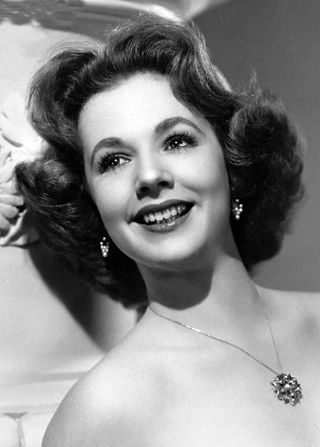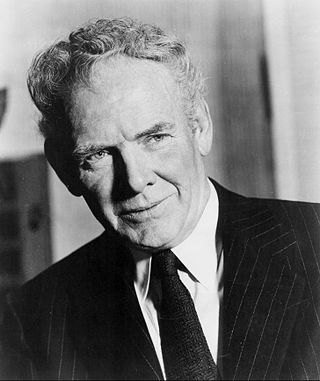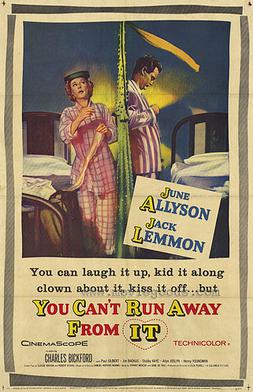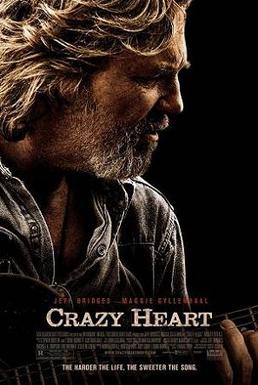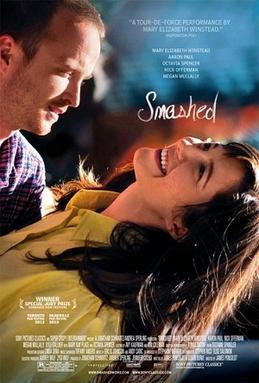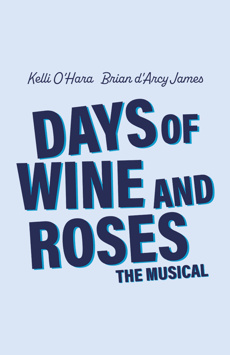Plot
San Francisco public relations executive Joe Clay meets secretary Kirsten Arnesen. At first, he considers her to be brash and disrespectful, but he eventually begins dating her. Kirsten is a teetotaler until Joe introduces her to social drinking. She is initially reluctant, but after her first few Brandy Alexanders, she admits that having a drink makes her "feel good." Despite the misgivings of Kirsten's father, who runs a San Mateo landscaping business, they marry and have a daughter, Debbie.
Joe and Kirsten slowly go from the "two-martini lunch" to full-blown alcoholism. Joe is demoted due to poor performance, and is sent out of town to work on a minor account. Kirsten is alone all day and finds drinking the best way to pass the time. While drunk one afternoon, she causes a fire in their apartment that almost kills her and Debbie. Eventually, Joe is fired, and he spends the next several years going from job to job.
One day, Joe sees his reflection in a bar window and realizes in horror that he hardly knows his own face. He tells Kirsten that they must stop drinking, and while not keen on the idea, she agrees. Seeking escape from their addiction, Joe and Kirsten work together in Arnesen's business and stay sober for two months. But the urge is too strong, and during a late-night drinking binge, Joe destroys his father-in-law's greenhouse while looking for a stashed liquor bottle.
Joe is committed to a sanitarium, where he suffers from delirium tremens while confined in a straitjacket. After his release, Joe finally gets sober with the help of Alcoholics Anonymous, a dedicated sponsor named Jim Hungerford, and regular AA meetings. Jim explains to Joe how alcoholics often demonstrate obsessive behavior, pointing out that Kirsten's previous passion for chocolate may have been the first sign of an addictive personality. He advises Joe that most drinkers hate to drink alone or in the company of sober people.
Meanwhile, Kirsten's drinking persists, and she disappears for several days without contacting Joe. She is eventually located at a nearby motel, drunk, but when Joe tries to help her, he ends up drinking again. When their supply runs out, Joe happens upon a liquor store that has closed for the night. He breaks in and steals a bottle but trips and is taunted by the store owner. The result is another trip to the sanitarium, where he is stripped down and tied to a treatment table. Jim appears at his side and warns him that he must keep sober no matter what, even if that means staying away from Kirsten.
Joe finally gets sober, becomes a responsible father to Debbie, and holds down a steady job. He tries to make amends to his father-in-law by offering him payment for past debts and wrongs, but Arnesen accuses him of being indirectly responsible for Kirsten's alcoholism. After calming down, Arnesen says that Kirsten has been disappearing for long periods and is picking up strangers in bars.
One night, Kirsten, shakily sober for two days, comes to Joe's apartment to attempt a reconciliation. Joe tells her she is welcome back anytime if she stops drinking, saying he will not abandon sobriety for her or anything else. Despite acknowledging she can't stop, Kirsten refuses to admit she is an alcoholic and suggests Joe give up on her before leaving.
Joe fights the urge to go after her, calling her name as she turns away from a bar. His cries wake a sleeping Debbie, who asks if Kirsten is coming back. Joe tells her Kirsten is sick and, after deflecting her questions about Kirsten "getting well," stares out at the empty street, the bar's flashing neon sign reflected in the window.
Production
Background
JP Miller found his title in the 1896 poem "Vitae Summa Brevis Spem Nos Vetat Incohare Longam" by the English writer Ernest Dowson (1867–1900): [6] It also inspired the title song devised by Henry Mancini and Johnny Mercer.
- They are not long, the weeping and the laughter,
- Love and desire and hate;
- I think they have no portion in us after
- We pass the gate.
- They are not long, the days of wine and roses:
- Out of a misty dream
- Our path emerges for a while, then closes
- Within a dream.
Johnny Mercer had also written the lyrics for the theme from Laura , a 1944 film in which Dowson's poem is quoted in its entirety.
Miller's teleplay for Playhouse 90, also titled Days of Wine and Roses , had received favorable critical attention and was nominated for an Emmy Award in the category Best Writing of a Single Dramatic Program - One Hour or Longer. Manulis, a Playhouse 90 producer, decided the material was ideal for a movie. Some critics observed that the movie lacked the impact of the original television production, which starred Cliff Robertson as Joe and Piper Laurie as Kirsten. In an article written for DVD Journal, critic D.K. Holm noted numerous changes that altered the original considerably when the material was filmed. He cites as an example the hiring of Jack Lemmon. With his participation "little remained of the founding teleplay, except for actor Charles Bickford reprising his role." [7]
Filming
The film's locations included San Francisco, Albany, California, and the Golden Gate Fields race track. The Oscar-winning title song had music by Henry Mancini and lyrics by Johnny Mercer. Single records by Andy Williams and the Henry Mancini chorus made the Billboard Top 40.
Director Blake Edwards became a non-drinker a year after completing the film and went into substance-abuse recovery. He said that he and Jack Lemmon were heavy drinkers while making the film. [8] Edwards used the theme of alcohol abuse often in his films, including 10 (1979), Blind Date (1987) and Skin Deep (1989). Both Lemmon and Remick sought help from Alcoholics Anonymous long after they had completed the film. Lemmon revealed to James Lipton on Inside the Actors Studio his past drinking problems and his recovery. The film had a lasting effect in reinforcing the growing social acceptance of Alcoholics Anonymous. [9]
In the interview on Inside the Actors Studio, Lemmon stated that there was pressure by the studio to change the ending. To preserve the integrity of the movie, scenes were filmed in the same order as they appeared in the script, with the last scene filmed last. This is in contrast with the standard practice of filming different scenes together that take place in the same location, which reduces expenses, shortens the schedule, and aids with scheduling the actors' time on set. Immediately following the completion of filming, Lemmon left for Europe and remained out of communication so that the studio would be forced to release the movie without changing the story.
Reception
Critical response
The film became one of Blake Edwards' better-regarded films, opening to praise from the critics and audiences alike. Bosley Crowther, film critic for The New York Times , wrote "[It] is a commanding picture, and it is extremely well played by Mr. Lemmon and Miss Remick, who spare themselves none of the shameful, painful scenes. But for all their brilliant performing and the taut direction of Blake Edwards, they do not bring two pitiful characters to complete and overpowering life." [11]
"Tube." at Variety liked the film, especially the acting and writing: "Miller's gruelling drama illustrates how the unquenchable lure of alcohol can supersede even love, and how marital communication cannot exist in a house divided by one-sided boozing ... Lemmon gives a dynamic and chilling performance. Scenes of his collapse, particularly in the violent ward, are brutally realistic and terrifying. Miss Remick, too, is effective, and there is solid featured work from Charles Bickford and Jack Klugman and a number of fine supporting performances." [3]
In a review of the DVD, critic Gary W. Tooze lauded Edwards' direction: "Blake Edwards's powerful adaptation of J.P. Miller's Playhouse 90 story, starring Jack Lemmon and Lee Remick in career performances, remains a variation in his body of work largely devoted to comedy... Lemmon is at his best and ditto for Remick in this harrowing tale of people consumed by their mutual addiction. This turns to an honest and heartbreaking portrayal of alcoholism as deftly done as any film I can remember." [12]
Margaret Parsons, film curator at the National Gallery of Art, stated "[The film] remains one of the most gut-wrenching dramas of alcohol-related ruin and recovery ever captured on film...and it's also one of the pioneering films of the genre." [13]
On review aggregator Rotten Tomatoes, the film has an approval rating of 100% based on 14 reviews, with an average score of 8.80/10. [14]
Box office
Jack L. Warner claimed the film needed to earn theatrical rentals of 2.5 times its $2 million budget to become profitable. [1] It earned $4 million in rentals in the United States and Canada, [15] from a gross of $8.1 million, ranking it 14th among high-grossing films of the year. [2]
Awards and nominations
Other Honors
- Selected by the film critics of The New York Times as one of the 1000 best films ever made.
- Selected as one of American Film Institute's best 400 films.


